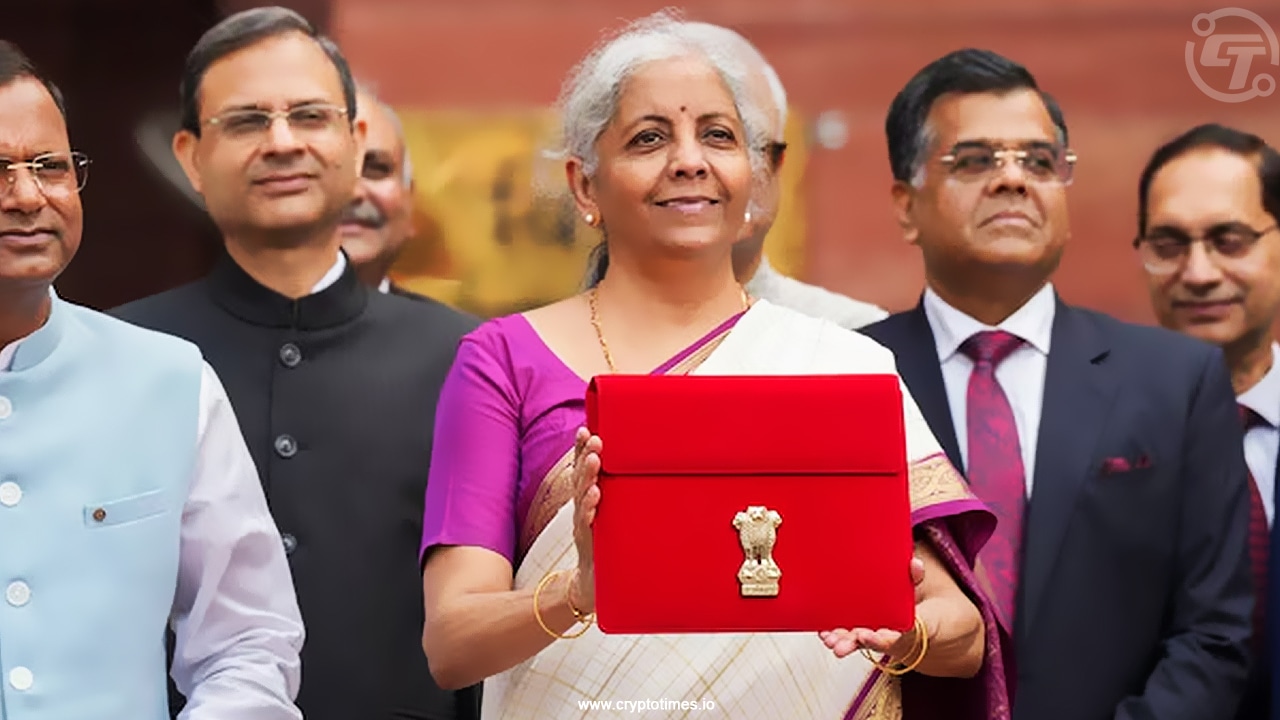The Untouched Realm of Cryptocurrency in India’s Latest Budget Announcement
In a move that left the crypto community hanging on the edge, India’s recent 2024-25 budget announcement by Finance Minister Nirmala Sitharaman conspicuously omitted any new developments regarding the taxation or regulation of cryptocurrencies. Despite the anticipation and calls from industry players for more favorable policies, the stance on crypto remains unchanged, continuing the narrative of uncertainty in this rapidly evolving sector.
A Steady Stance Amidst Hope for Change
During the much-awaited annual budget speech, expectations were high for a potential shake-up in the crypto tax framework. However, Sitharaman’s decision to leave the current tax regulations untouched spells a year of status quo for crypto transactions. With the retained deduction at source (TDS) rate firmly set at 1% and a hefty 30% tax on income from virtual digital assets, the crypto community’s hopes for a reduced tax burden have been dashed. Despite strong pleas backed by think tank studies for a drastic reduction in TDS to 0.01%, the government seems to be treading cautiously in the unpredictable waters of digital currencies.
The Call for a More Flexible Tax Regime
The crescendo of voices from the crypto industry advocating for a shift from a flat tax rate to a more progressive system remains unheeded. Such a change would not only encourage investment in digital assets but would also reflect a deeper understanding and acceptance of the market’s complexities. The ability to offset losses against gains would introduce a fairer tax treatment, showcasing a balance between regulation and growth. Additionally, the industry’s push for a comprehensive regulatory framework points to a pressing need for clarity and security within this booming sector.
A New Political Dynamic and Its Implications
This year’s budget comes under the fresh mandate of Prime Minister Narendra Modi’s third term. Although the Bharatiya Janata Party (BJP) did not secure a clear majority, leading to a coalition government, the event marks a significant moment in India’s political landscape. This new government formation brings with it the potential for shifts in policy-making, directly impacting the various sectors of the economy, including the relatively nascent crypto industry.
The unveiling of the budget amidst these circumstances was seen as a litmus test for Modi’s vision for India over the next half-decade. With the surprise election results and the advent of coalition politics, there was a speculative eye on how these dynamics would influence legislative priorities, including the treatment of cryptocurrencies.
What Lies Ahead for Cryptocurrency in India
The absence of direct references to cryptocurrency in the latest budget announcement has left industry observers and participants pondering the future. As India strides forward under a new coalition era, the path for the crypto sector remains riddled with uncertainties. While some view this as a missed opportunity to embrace and regulate a burgeoning financial avenue, others see it as a cautious stance in the face of a complex and often contentious global phenomenon.
Despite the current stagnation in policy evolution, the conversation around digital currencies is far from over. The calls for a more accommodating regulatory environment continue to gain volume, signaling a vibrant, albeit challenging, future for cryptocurrency in India. As the landscape evolves, the interplay between innovation, regulation, and market dynamics promises to keep stakeholders engaged, advocating for a balance that fosters growth while ensuring stability and security.
Continuing the Dialogue and Striving for Clarity
As the dust settles on the latest budget pronouncements, the crypto community in India and beyond remains in a state of watchful anticipation. The consensus leans towards a continued dialogue between the government and the sector, with the hope that future policies will reflect a nuanced understanding of digital currencies. The journey towards a progressive and inclusive framework for cryptocurrency in India is ongoing, embodying the quintessential spirit of innovation and resilience.
In conclusion, while the immediate future may not have brought the changes many had hoped for, the dialogue surrounding cryptocurrency in India is far from over. The collective aspiration for a more inclusive and understanding regulatory approach keeps the industry optimistic. As the nation moves forward, navigating through the complexities of coalition politics and economic strategies, the crypto sector’s potential to contribute to India’s economic landscape remains undiminished, waiting for the right moment to shine brightly in the ever-evolving financial galaxy.
